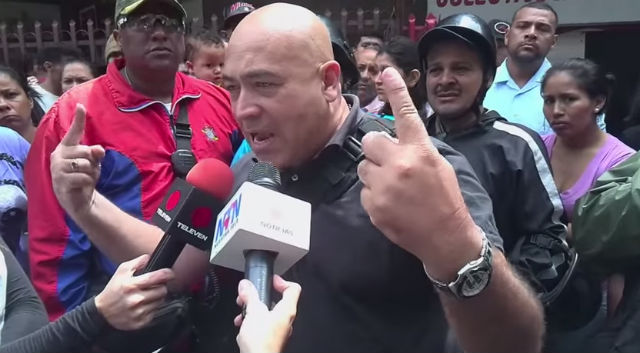
Andes, Blog, Latin America: Week in Review, Venezuela
Shootout Between Authorities and Militiamen Leaves Five Dead in Caracas
October 9, 2014 By Staff
Top Story — A shootout between Venezuelan police and pro-government militia members in downtown Caracas left five dead and four injured. A high-profile militia leader anticipated his own death during the raid when he announced on camera that the minister of the interior should be to blame for any attempts on his life.
The hostilities began early on Tuesday, when police raided a high-rise building allegedly occupied by pro-government loyalists. One militiaman died in the initial clash, leading to an eight-hour standoff that saw shots being fired from both sides, policemen being taken hostage, traffic gridlock across several neighboring blocks and overall panic in the Venezuelan capital.
José Odreman, the slain militia leader and a former policeman, provided a television interview during a brief respite in the fighting. He lay the blame for the raid on Minister of the Interior Miguel Rodríguez Torres, and said Rodríguez should also be held responsible for any imminent attempts on his life. The shootout resumed when militia members took three policemen hostage. About 90 minutes later, Odreman was killed.
Odreman’s aide was among the five people killed. The remaining three victims have yet to be identified.
During his televised interview, Odreman further stated that the raid was tied to the grisly killing of Roberto Serra, a rising-star within the pro-government movement. “The math doesn’t fail,” he said.
Authorities immediately dismissed the accusations. On Wednesday, President Nicolás Maduro ordered a thorough investigation of the shootout.
The Venezuelan coletivos, or collectives, comprise militia groups tasked with defending the “Bolivarian Revolution” championed by late President Hugo Chávez. The current administration headed by Maduro maintains a delicate relationship with the coletivos, which played a significant, often violent role in the protests that shook the country earlier this year.
Headlines from the Western Hemisphere
North America
- Tens of thousands of citizens blocked a major highway in Mexico’s Guerrero state in protest of the still-missing students. The protesters questioned the innocence of local police and demanded the authorities take action.
- U.S. aid to the Mexican government, ostensibly to fight the “war on drugs,” may have inadvertently contributed to the massacre in Guerrero, according to The Guardian. U.S. funding has allowed for further militarization of Mexican forces already known to have poor track records concerning human rights abuses.
Caribbean
- Cuban officials said they see no indication that the Obama administration will change U.S. policy towards Cuba, despite increased support among American citizens for a friendlier relationship with the island nation.
- Human Rights Watch advised the vice president of the World Bank to concentrate on sanitation and access to clean water in Haiti before a donor conference aimed to gather financial aid for the nation takes place tomorrow in Washington D.C.
Central America
- Waste water generated during coffee production in Central America is often environmentally damaging, but could be converted into a new sustainable energy source. The monumental shift will require great investment and cooperation between governments and coffee farmers.
- After years of legal battles, Costa Rica has agreed to compensate thousands of banana workers and their relatives after they were exposed to the harmful chemical Nemagon at plantations in the 1960s and 1970s.
- The Guatemalan government might tighten control over the country’s extensive contraband network. For generations, goods have crossed into the western San Marcos province from Mexico in a system that is both deeply ingrained and on which many citizens’ livelihoods depend.
- InSight Crime investigated the recent intensification in Honduras’ fight against drug traffickers, and whether President Juan Orlando Hernández will continue his efforts despite the country’s problems with corruption and institutional weakness.
Andes
- Some 110,000 children and adolescents in Peru, most of them girls from the Andean highlands, are employed as domestic workers, according to statistics from the International Labor Organization
- Vice News investigated the potential for peace in Colombia amidst negotiations between President Juan Manuel Santos and leftist rebel group the Revolutionary Armed Forces of Colombia, and what that will mean for the country’s lower class.
- Colombia’s government may expand conscription to women, although concerns remain over the ability of the rich to buy their way out of military or community service, as well as the alleged practice of forced recruitment.
Southern Cone
- Argentina’s broadcast media regulator has said that it will break up media conglomerate Grupo Clarin after rejecting the group’s restructuring plan to comply with new media ownership laws.
- Argentina’s state energy company YPF denied it has struck a $1 billion deal with Russian gas producer Gazprom, despite a statement to that effect by Argentina’s industry ministry earlier on the same day.
- São Paulo’s prisons are overcrowded by an average of 70 percent, an issue that is ignored by the state’s gubernatorial candidates, according to an InSight Crime translation of a report by the news organization Ponte
- Uruguayan presidential candidate Tabaré Vásquez, a member of outgoing president José Mujica’s Broad Front coalition, is leading in polls ahead of the Oct. 26 2014 presidential election. However, he will likely face a runoff against National Party lawmaker Luis Alberto Lacalle Pou, who has criticized Mujica’s offer to accept six Guantanamo Bay detainees in Uruguay.
Image: Youtube
Subscribe to Today in Latin America by Email
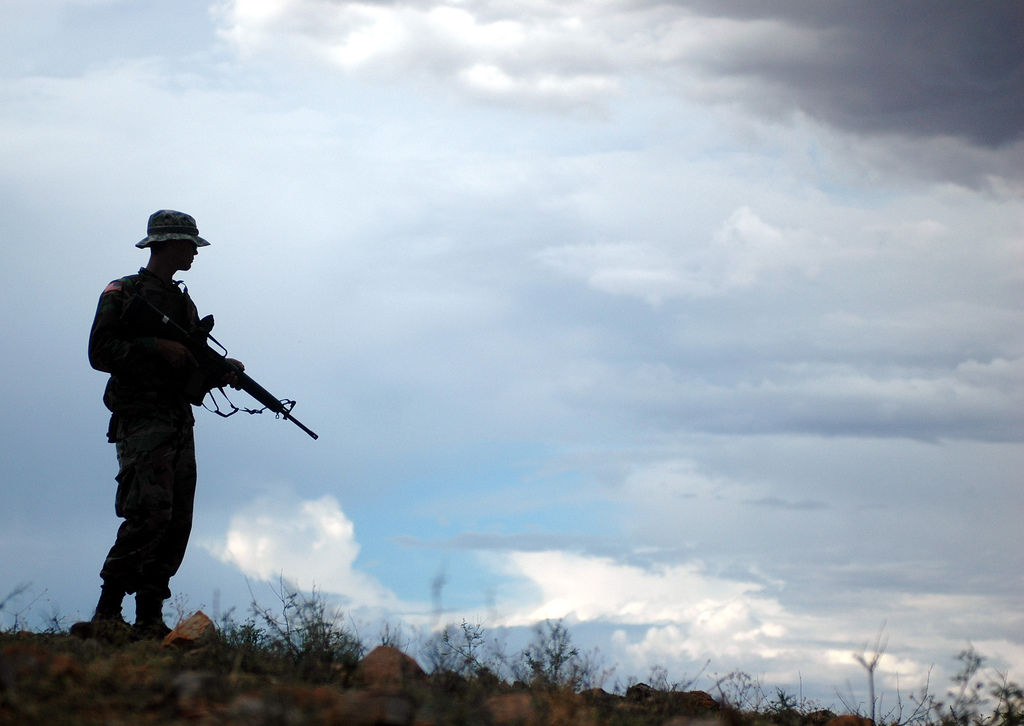
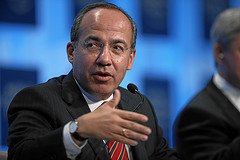
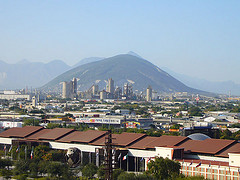

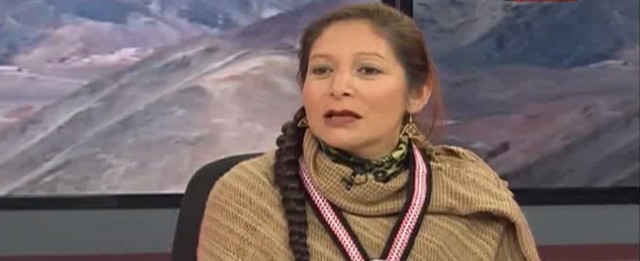
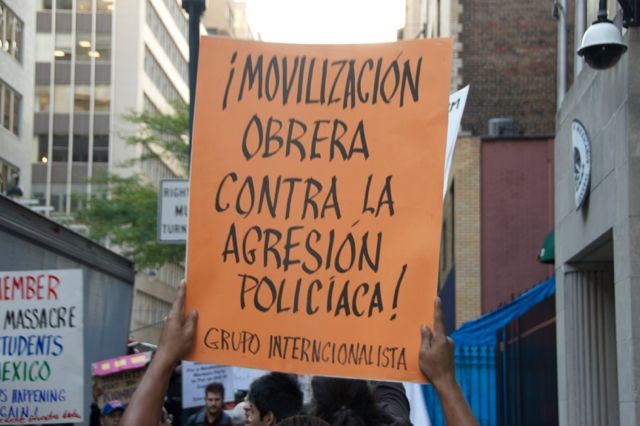
1 Comment
[…] authorities arrested two people in connection with the fatal stabbing of legislator Robert Serra and his partner earlier this […]
Comments are closed.